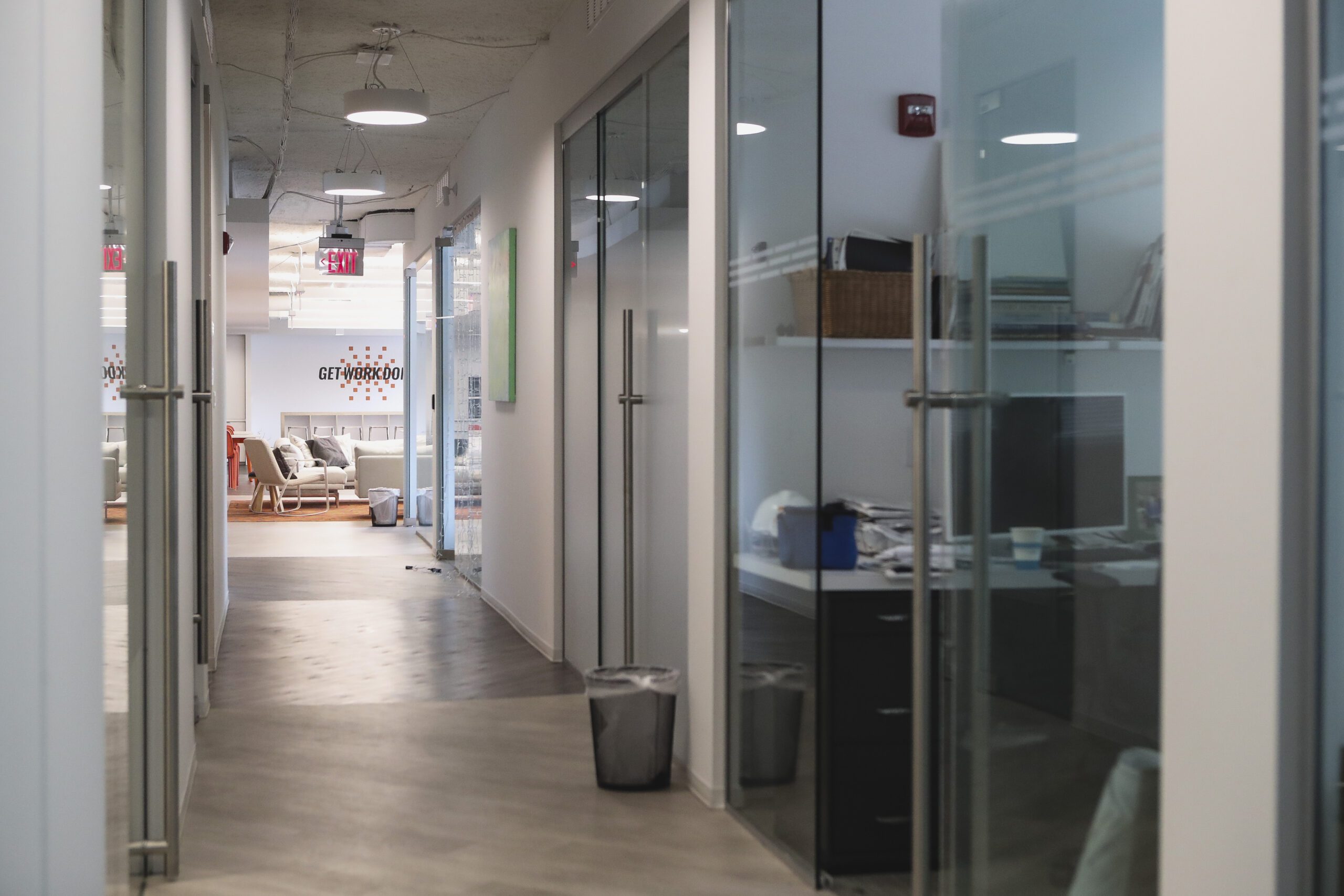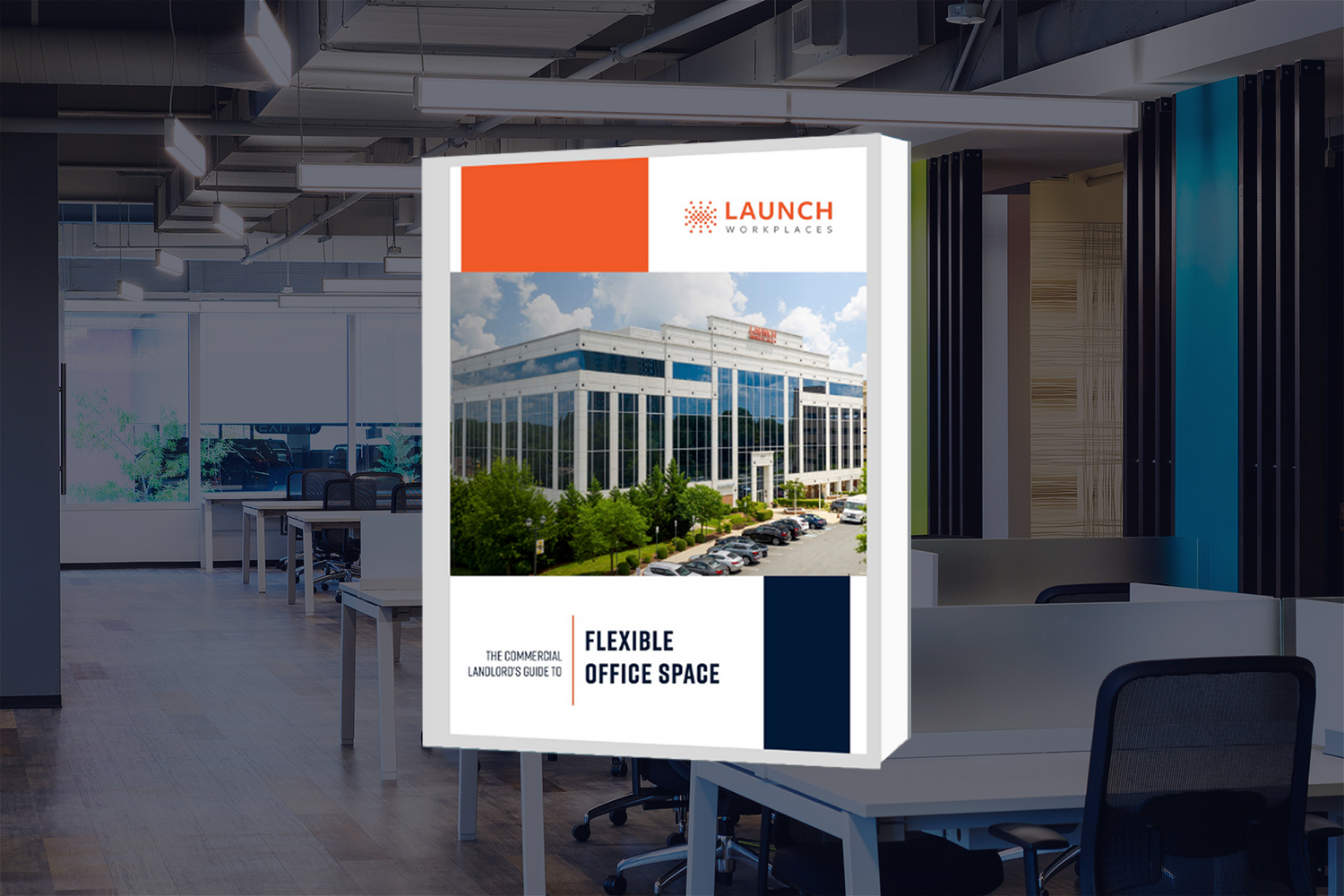
If you’re a commercial landlord or office building owner, you’re already familiar with traditional commercial property management. It’s the tried-and-true traditional formula for running office buildings.
But as a landlord or building owner, you also know the traditional way of doing things is changing.
So, your approach to commercial property management should be, too.
Let us share some food for thought.
The Rise of Flexible Office Space and Its Impacts on Commercial Property Management
The way businesses approach office space is evolving fast.
Flexible workspaces are becoming a go-to solution for businesses of all kinds, offering more than just a place to work—they’re fully equipped, move-in-ready environments designed to meet the needs of today’s agile workforce.
These managed spaces provide everything from high-speed internet to modern furniture, making it easier than ever for businesses to get started without the typical headaches of traditional leasing.
This shift in business preferences reflects a broad change happening in the office industry.
The number of coworking spaces globally has been on a skyward trajectory, and it doesn’t show signs of stopping.
As the office industry changes, the market demands innovation, and this has driven the rise of a new kind of commercial property management:
Coworking management agreements.
These agreements between coworking operators and office landlords are helping reshape how buildings operate and thrive in an evolving world.
Why Flexible Workspace Solutions Appeal to Modern Enterprises

The way businesses approach office space has changed dramatically over the past decade.
Remote, hybrid, and flexible work arrangements were gaining traction before the pandemic, but 2020 accelerated their adoption at an unprecedented pace.
Traditional offices sat vacant for months—if not years—highlighting the financial risks of long-term leases and leaving companies rethinking how they use office space.
Businesses needed a solution that would support collaboration for dispersed teams without locking them into expensive, rigid lease agreements.
Flexible office spaces emerged as the perfect fit, offering dynamic solutions that address modern workforce needs while mitigating financial risks.
These spaces offered some significant advantages over traditional leases.
Flexible Terms
Flexible office spaces offer shorter, more agile lease terms, allowing companies to scale their space up or down as their headcount changes. This means businesses can focus on what they need now without worrying about long-term commitments.
Collaboration-Centric Design
These spaces prioritize open and shared areas that foster creativity and teamwork, making them ideal for bringing remote teams together for brainstorming sessions or project kickoffs.
Turnkey Availability
Fully furnished and pre-equipped, flexible office spaces eliminate the hassle of setup. Businesses can move in and start working immediately, saving time and reducing operational headaches.
Beyond that, flexible office spaces typically offer various services, from coworking and dedicated desks to private offices and enterprise solutions, meaning this model can meet the needs of solopreneurs, small teams, startups, and even enterprise organizations—adding a diversified tenant base to your building.
Built-In Networking Opportunities
Flexible workspaces often include shared lounges or community events, encouraging professional connections and offering a valuable networking boost.
Understanding Commercial Property Management with Coworking Operators

A coworking management agreement is a contractual partnership between a building owner (or leaseholder) and a coworking space operator. Often referred to as a coworking agreement or contract, it establishes a shared responsibility for managing and operating the space.
Here’s how it typically works:
- Building Owner’s Role: The building owner retains ownership of the coworking space, covers operational costs, manages the property, and handles lease-related responsibilities.
- Coworking Operator’s Role: The operator focuses on running the coworking business. This includes developing the brand, fostering a thriving community, and attracting and retaining members.
- Revenue Sharing: Profits generated from the coworking space are shared between the building owner and the operator based on the terms of the agreement.
These agreements leverage the strengths of both parties—the branding and community-building expertise of coworking operators paired with the property management and asset oversight experience of building owners.
For coworking operators, this model reduces the need to manage construction, negotiate leases, or take on financial risks. Instead, it allows them to focus on what they do best: creating dynamic, member-focused communities.
Dollars and Sense: Why Management Agreements Benefit Building Owners
Management agreements for coworking and flex office spaces are becoming an appealing option for building owners.
Why?
Because, unlike traditional lease arrangements where coworking operators function as separate tenants, the managed model fosters a collaborative partnership between the building owner and the workspace operator.
In this setup, the operator manages the flexible workspace on behalf of the owner, integrating services and community engagement to enhance the building’s overall appeal.
This offers a few essential benefits.
1. Enhanced Tenant Integration
By partnering with flexible workspace experts, you can transform your property into a vibrant hub that connects all your tenants—not just those in the coworking space.
At Launch, we refer to this as activating your building.
This creates a dynamic community atmosphere that not only boosts tenant satisfaction but also makes your building a sought-after location for businesses.
2. Monetization of Amenities
With a management agreement, you can turn underutilized areas into profitable spaces. From coworking areas to private offices, these flexible options meet modern tenant demands while maximizing the revenue potential of every square foot of your property.
3. Professional Management
Leave the complexities of workspace management to experienced operators. They’ll handle everything—from designing the space to managing daily operations—so you can provide top-tier services to your tenants without adding to your workload.
4. Increased Revenue Potential
Flexible workspaces often command premium rates. By offering adaptable, fully serviced spaces, you can attract high-value tenants willing to pay more for convenience, helping you increase your property’s profitability.
5. Reduced Vacancy Downtime
Ready-to-use workspaces are exactly what today’s tenants are looking for. With flexible office solutions in place, you can minimize the time your spaces sit empty, ensuring a steady, reliable income stream.
Think of it this way: if you have one blue chip tenant occupying 20,000 square feet of space in your building, how long will it take to backfill that space with another single tenant?
With a management agreement, you can break that 20,000 square feet into smaller parcels of flexible office space, reducing your liability in the event of a vacancy or tenant turnover.
6. Adaptability to Market Trends
The workplace is evolving, and your property can evolve with it. Offering flexible workspace solutions allows you to meet tenant demands and adapt quickly to changing market needs, keeping your property competitive and occupancy rates high.
Launch Workplaces: Your Partner in Commercial Property Management
As the office industry changes exponentially, it can be daunting to decide on the right commercial property management strategy to ensure the longevity of your building.
Adopting a flexible, managed model helps shield you from risks and overcome common property management challenges, which benefits both tenants and you as the landlord.
A partnership model ensures that every square foot contributes to ROI, has a positive impact on business ROI, and increases tenant satisfaction – all while enhancing the property’s long-term value.
If you’re a landlord or property owner interested in exploring a managed model for your property, contact Launch Workplaces for guidance on getting started. Learn more about partnering with Launch Workplaces.




